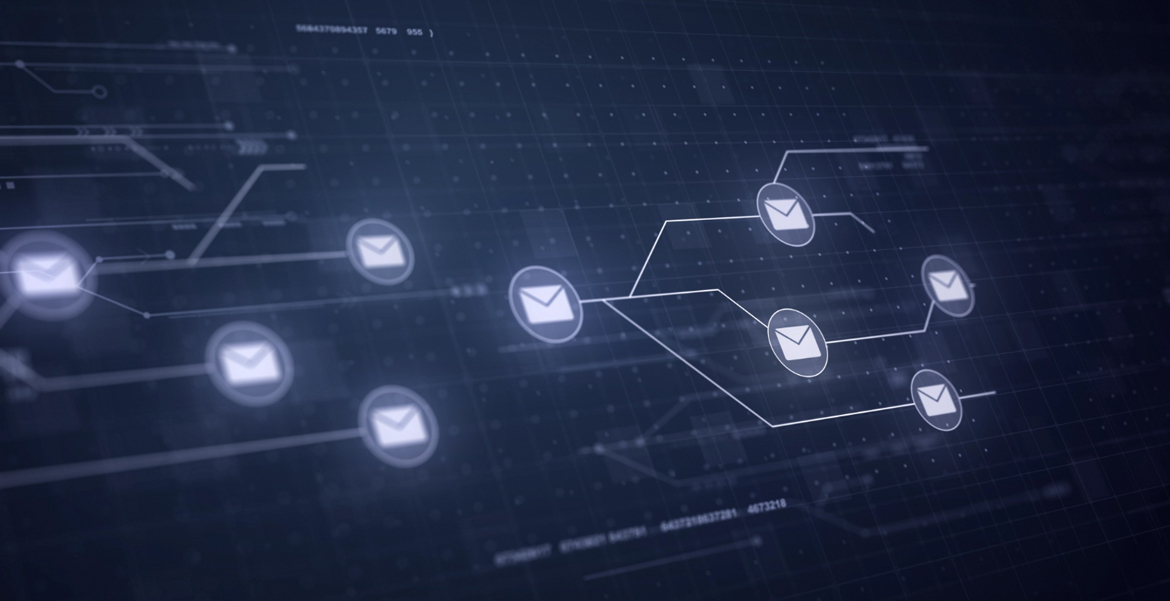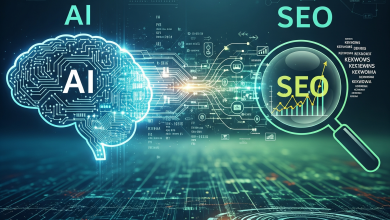
Artificial Intelligence (AI) is reshaping the way eCommerce businesses communicate with customers — and in 2025, the smartest brands are leveraging AI-powered email marketing platforms to boost engagement, recover abandoned carts, and drive repeat purchases.
These platforms integrate with Shopify and other major eCommerce systems to automate campaigns, segment audiences with precision, and deliver personalized experiences at scale. When powered by AI, email marketing stops being guesswork and becomes a data-driven growth engine.
Why AI-Powered Email Marketing Matters for eCommerce
Traditional email campaigns often fail because they are too generic, slow to deploy, or disconnected from real-time customer behavior. AI changes that.
- Data-Driven Personalization: AI tools pull customer and order data directly from Shopify’s API to create messages tailored to individual behavior.
- Predictive Insights: Algorithms forecast buying patterns, helping merchants send the right message at the right time.
- Automated Optimization: AI monitors engagement metrics in real time and adjusts campaigns to improve open and click-through rates.
Without these capabilities, retailers risk sending irrelevant emails, missing sales opportunities, and losing customer trust.
Top 10 AI-Powered Email Marketing Platforms for eCommerce in 2025
1. Omnisend
Omnisend delivers AI-optimized multichannel campaigns across email, SMS, and push notifications. Pre-built automation for abandoned carts, post-purchase flows, and seasonal promos save time while maintaining personalization.
AI Advantage: Automated channel selection to reach each customer via their preferred medium.
2. Yotpo
Yotpo’s eCommerce Email Marketing integrates Shopify order data to power AI-driven segmentation and personalization. Its product review integration boosts credibility by including customer ratings directly in emails. CSS flexbox ensures responsive design, while analytics optimize ROI.
AI Advantage: Behavioral segmentation that adapts as customer actions change.
3. Klaviyo
Klaviyo uses Shopify data and predictive analytics to anticipate customer actions, such as likely repeat purchases or churn. Dynamic content creation and advanced segmentation make every email highly targeted.
AI Advantage: Forecast-based recommendations for upsells and re-engagement campaigns.
4. Shopify Email
Built directly into Shopify, this platform offers simple automation and segmentation. While less feature-heavy than competitors, it uses AI to recommend send times and subject lines for higher engagement.
AI Advantage: Native integration with store data for instant personalization.
5. Mailchimp
Mailchimp’s AI tools suggest content, design layouts, and optimal campaign timing. Its Shopify integration syncs customer data for targeted segmentation.
AI Advantage: Predictive content recommendations and automated audience growth tracking.
6. ActiveCampaign
ActiveCampaign specializes in AI-enhanced customer journey mapping. It uses behavior data to trigger relevant workflows, from product recommendations to review requests.
AI Advantage: Predictive lead scoring for prioritizing high-value customers.
7. Brevo
Formerly Sendinblue, Brevo merges email and SMS with AI-based localization and language adaptation to increase engagement in different markets.
AI Advantage: Automatic language detection and localized campaign creation.
8. Mailercloud
AI Advantage: AI-powered subject line suggestions and automated personalization that help improve open and click-through rates.
9. Seguno
Seguno runs entirely inside Shopify’s admin panel, making AI-powered automation accessible without complex setup. It focuses on purchase-history-driven segmentation.
AI Advantage: Instant campaign adjustments based on live store analytics.
10. GetResponse
GetResponse combines advanced automation with AI content generation and A/B test optimization. Shopify data powers targeted workflows for product launches, seasonal offers, and more.
AI Advantage: Auto-generated campaign variations that learn from engagement data.
Technical AI Features Driving Shopify Growth
1. Automation Workflows
AI-powered platforms like Yotpo’s eCommerce Email Marketing can fully automate campaigns based on real-time triggers. As an example of a Shopify app, use emails to get reviews efficiently. By connecting directly to Shopify’s API, the system reacts instantly to customer actions — sending review requests after purchases, following up on abandoned carts, or delivering personalized offers.
Dynamic content, powered by JavaScript, ensures that every email adapts to the recipient’s behavior. AI-enhanced analytics then refine the workflow for higher conversion rates and retention.
Without automation, businesses are forced into manual emailing — a slow, inefficient process that misses critical engagement opportunities, leading to lower sales and higher churn.
2. Customer Segmentation
AI takes segmentation beyond simple demographics. Yotpo, for example, analyzes purchase history, browsing behavior, and engagement patterns to build precise audience segments.
These segments receive tailored messages — with product recommendations, personalized review requests, and targeted offers — all generated automatically. Dynamic content ensures each message feels one-to-one.
Without AI-driven segmentation, email campaigns become generic and irrelevant, reducing open rates, lowering conversions, and increasing customer churn.
3. Responsive Design
AI-assisted responsive design ensures every email looks perfect on any device. Using CSS flexbox layouts and Shopify’s synced product data, platforms like Yotpo automatically optimize layouts, integrate review widgets seamlessly, and maintain mobile compatibility.
Mobile-optimized emails increase readability, click-through rates, and conversions. Without responsive design, customers struggle to interact with content, bounce rates rise, and potential revenue is lost.
4. Analytics and Reporting
Modern email marketing platforms use AI to track performance in real time — measuring open rates, click-throughs, and even the impact of embedded product reviews.
Interactive dashboards, powered by JavaScript, present actionable insights so marketers can instantly adjust campaigns for better results.
Without advanced analytics, optimization becomes guesswork. Campaigns stagnate, engagement drops, and revenue suffers due to missed opportunities for improvement.
Final Thoughts
In 2025, the best eCommerce growth strategies will combine human creativity with AI precision. Whether you choose Yotpo for its review integration, Klaviyo for predictive analytics, or Omnisend for multichannel automation, the right AI-powered email marketing platform can boost conversions, improve retention, and drive steady revenue growth.
By embracing AI now, eCommerce brands position themselves not just for survival, but for sustained, intelligent expansion in a competitive market.





